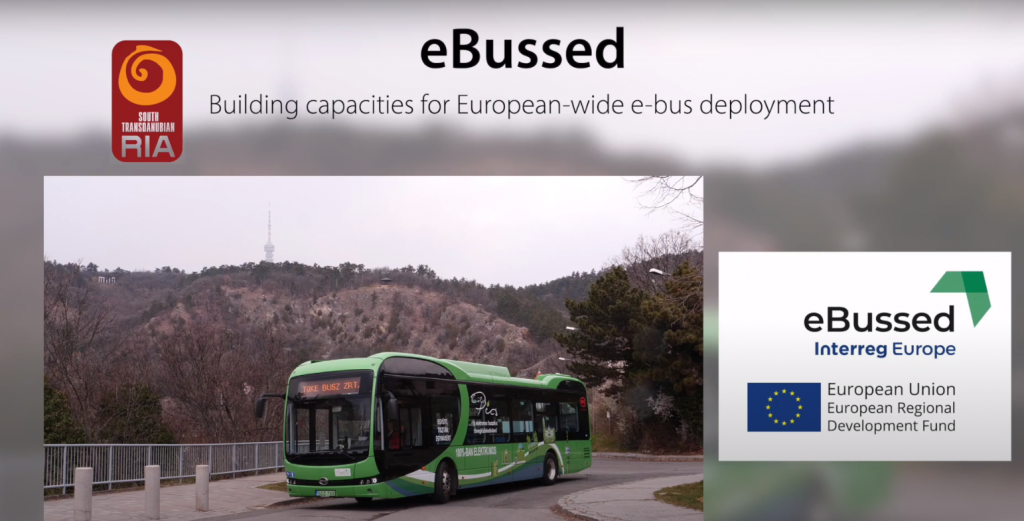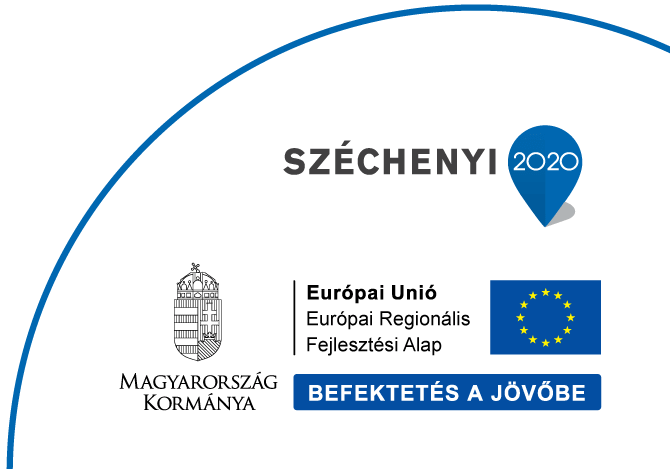On 31 March 2021, STRIA South Transdanubian Regional Innovation Agency Nonprofit Ltd. (STRIA) organized its second online interregional learning event for the eBussed project. In addition to representatives from the partner regions, Hungarian and foreign stakeholders from the public transport industry and the mobility sector also appeared. The topic of the event was the presentation of Awareness raising for the deployment of e-buses.

At the beginning of the meeting, Mr. Zoltán Haász managing director of STRIA greeted the participants, introduced the company and highlighted the importance of e-mobility. Then Mr. Zsolt Pálmai deputy director of STRIA briefly introduced the program of the interregional learning event and two promotional videos were played about the South Transdanubian city, Pécs.
After, Mrs. Veronika Erős, project leader of the Green Bus Program represented the Green Bus Program of the Hungarian Government. The presentation began with the framework and the main objectives of the program such as:
- bus fleet replacement,
- emission reduction,
- noise pollution,
- reduction of average bus age,
- reduction of average bus operation expenses,
- improvement of travel quality,
- increase domestic bus manufacturing capabilities.
She detailed the Green Bus Pilot Projects, which could be shared to demonstration and financing. She also mentioned the key objectives of the Green Bus Pilot Projects and the actors, who are involved: bus manufactures and distributors, infrastructure providers, municipalities, professional organizations, citizens. Finally, the demonstrations were discussed and the optional cities, where the next events could take place.
As the first good practice, the Pécs case was presented by Mr. Zoltán Csúcs, CEO of Pécs Urban Development Nonprofit Plc. The company is owned by the Municipality of Pécs and was involved in the procurement of the e-buses. He highlighted that the new e-buses were put into operation in the varied terrains of Pécs and these particularly affect the vehicles’ transport performance. However, the topographic characteristics of the city make the buses’ energy management more effective: a vehicle in downward run brakes more, so it sends back energy to the power supply to reduce the overall power consumption. Furthermore, Pécs plans to procure additional 8 new e-buses in the near future.
The second good practice, the Paks case was introduced by Mr. Balázs Kiss, external expert of Paks Transport Ltd. The company took over officially the local public transport service from the Volánbusz Plc. from 1st of February 2021. After 2 months of the launch, Paks Transport Ltd. is satisfied with the experiences. Drivers are happy with the new engines, buses are easy to drive. Users are generally happy, clock-face scheduling makes planning easier, the new network is more usable. Paks has plans for the future such as implementing further charging points, establishing community car-sharing services etc.
The last part of the event was the moderated debate with Mr. János Szász, e-mobility expert of CAE Consulting Ltd. An interactive short online survey was presented during this session and the questions raised were properly answered by the speakers and the moderator.
The participants were able to get a comprehensive picture of the awareness raising for the deployment of e-buses.
